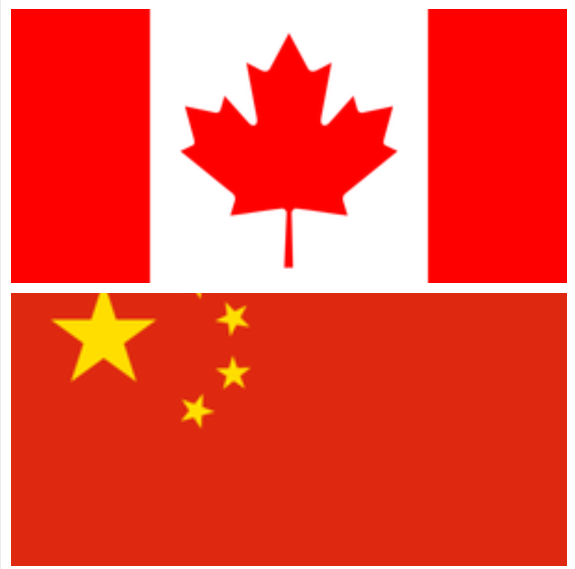the Moose and The Dragon
Canada China relations have been on a downward spiral. While there is a blame game on, the outcome of this stand off will hold important lessons for the smaller Western countries.

Canada China relations have been on a downward spiral. While there is a blame game on, the outcome of this stand off will hold important lessons for the smaller Western countries.

China has sentenced four Canadian citizens to death over a 2016-2017 drug dealing case. Now, on its own – this is not surprising. Many Asian countries including Singapore have stringent laws to deal with drugs. However, in the light of worsening China – Canada relations, these verdicts assume a certain significance.
Some history first: Canada got wedged in a diplomatic war between China and the USA. USA asked Canada [under a mutual extradition treaty] to arrest Meng Wanzhou – the CFO of Huawei. The charges that the USA had on her, are quite serious, and the executive tried to escape the US case through Canada. Canada had put her in house arrest, in her mansion in Vancouver. Whilst under house arrest, she had contested the extradition in Canadian courts. Recently, the court rejected her plea and ruled that the extradition is legal. The Canadian prosecution also recently submitted to the court that the conditions for her extradition have been met.
All of this didn’t go down well with China. In 2018, China had arrested two Canadians under charges of espionage. These arrests came right after Canada placed Meng Wangzhou in house arrest. While China has repeatedly denied that these arrests were retaliatory in nature – their official statements about Messrs Kovrig and Spavor were coupled with those about Wanzhou. In a turn of events that would have been funny, if not for the tragic outlook for its prisoners – China has also mirrored Canada’s statements that its judiciary is an independent entity and is not driven by political pressures. Coming from a country whose army serves the ruling party and not the nation-state, such statements stretch belief.
This recent case [death penalties] could well be one of firing a warning shot. We don’t know the facts of the matter – and those convicted may well be guilty. However, in publicizing these crimes of four Canadian citizens, China is unmistakably sending a signal: “release Meng, or else..”. Also ominous for Messers Kovrig and Spovar, the two Canadians accused of espionage – are the words of Chinese ambassador blaming Canada for the breakdown of relations.
Here is the rub: Canada has generally been a pliable Western world partner for China. Just like Australia tried in the past decade, Canada has also tried to use China as a counterweight to the omnipresent American influence. However, events of the past year have raised questions over such a foreign policy. China has not lived up to the expectations of a friendly giant. Increasingly, its actions have been that of a playground bully – a very large, nuclear powered playground bully.
Canada is stuck between a rock and a hard place. Domestic opinion in Canada is predictably split between blaming the US for the mess [Meng Wangzhou extradition is their headache, not Canada’s], and warning against an intransigent China. Especially with the case of Kovrig and Spovar, Canada finds itself in an unenviable position of being able to neither give in nor give a damn. How this issue evolves will have lessons for Canada, and also for Australia; and if I daresay – even Europe.
–wm
DISCLAIMER: The author is solely responsible for the views expressed in this article. The author carries the responsibility for citing and/or licensing of images utilized within the text.
